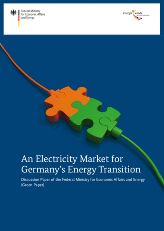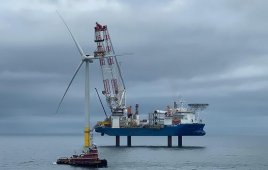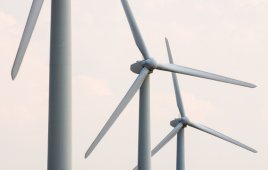The introduction of an Energy-Only Market which is strengthened by a capacity reserve lies at the heart of the White Paper, An Electricity Market for the Energy Transition, which was presented at the conclusion of the consultation phase for the Green Paper by the German Federal Ministry for Economic Affairs and Energy.
DNV GL, the world’s largest supplier of expert and independent energy services, welcomes the goals and actions of the German Federal Government regarding the further development of the design of the electricity market, and is taking part in the consultation on the White Paper. DNV GL comments that it supports the goal of the German Federal Ministry for Economic Affairs and Energy to strive for strengthened European co-operation regarding a secure electricity supply.
However, DNV GL notes the fundamental discrepancies between the proposed form of the capacity reserve and the European guidelines regarding the introduction of capacity mechanisms.
“In our opinion, there is considerable doubt that the development of a capacity reserve as stated in the White Paper will meet the requirements of the European guidelines”, mentioned Dr. Andreas Schröter, Managing Director and Executive Vice President, Central Europe & Mediterranean Energy Advisory, at DNV GL. “The goal of a new electricity market design, which would provide for security of supply whilst taking into consideration the guidelines for the European electricity market as the European Commission sees it, is not guaranteed under measures which have been proposed the Ministry Federal Ministry for Economic Affairs and Energy.”
In particular, the above-mentioned reintroduction of brown coal-fired power stations to the capacity reserve should be regarded as dubious, as this conflicts with the claim to technological neutrality which is clearly stated in the EU Commission’s ‘Guidelines on State aid for environmental protection and energy 2014-2020’. This document sets out the Commission’s conditions for the introduction of capacity mechanisms, in order to guarantee fair and efficient competition within the electricity market.
Moreover, the above-mentioned measures in the White Paper do not explicitly take into account the possibility of foreign capacity contributing to the German capacity reserve, although this has been promoted by the European Commission. Whilst a temporary capacity reserve that aims to maintain the security of supply is permissible, DNV GL comments that only a technological neutral and Europe-wide invitation to tender conforms with the European guidelines.
In addition to this, DNV GL currently observes considerable differences in a mutual understanding between Germany and its “electrical neighbors,” regarding what is meant by ‘security of supply’; this is particularly true when it comes to the toleration of extreme spikes in the price of electricity. In this respect, the joint statement for regional co-operation regarding a secure electricity supply, which is also in the White Paper, is a welcome development.
DNV GL
www.dnvgl.com/energy
Filed Under: Policy





